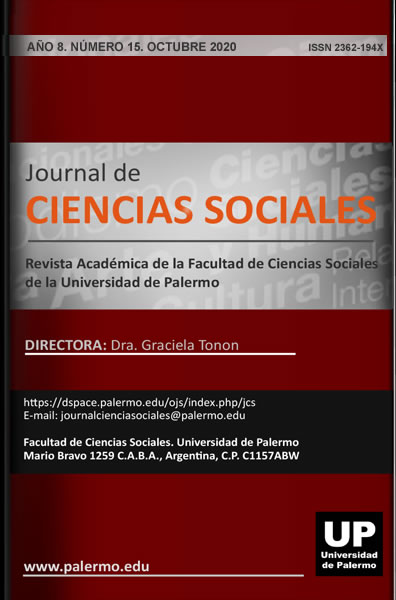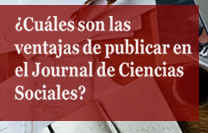Overcoming Poverty in Multidimensional Poverty Interventions through Self-assessment and Mentoring
Resumen
Una organización de microfinanzas en Paraguay ha desarrollado el "Semáforo de Eliminación de Pobreza" (PS), una herramienta tecnológica innovadora que permite a las familias autoevaluar su nivel de pobreza multidimensional y comenzar un proceso de tutoría integrado que tiene el objetivo de empoderar a las familias para eliminar la pobreza multidimensional en función de lo que los participantes valoran más. Durante el programa, un mentor trabaja con los participantes para diseñar un plan familiar personalizado para identificar sus desafíos más importantes para superar sus privaciones. El PS coloca el desarrollo humano y la eliminación de la pobreza como el objetivo principal de la intervención. Este artículo tiene tres objetivos. Primero, presenta la herramienta como una métrica multidimensional y una metodología para la intervención de la pobreza con el propósito explícito de fomentar la reflexión y promover la agencia. En segundo lugar, usa el Enfoque de Capacidad para explorar el potencial de la intervención del PS para aumentar la agencia y disminuir la privación. En tercer lugar, presenta los resultados de un proyecto de investigación en curso que evalúa la efectividad del programa para ayudar a los participantes a superar la pobreza. Esta parte empírica se basa en datos recopilados entre agosto de 2015 y junio de 2017 de más de 9,000 clientes de micro finanzas y analizados mediante regresiones OLS. Los resultados indican que la participación en el programa está asociada con una mayor probabilidad de superar la pobreza multidimensional.
Descargas
Citas
Alkire, S. (2005). Subjective Quantitative Studies of Human Agency. Social Indicators Research, 74(1), 217–260.
Alkire, S. & Deneulin, S. (2009). Introducing the Human Development and Capability Approach. An Introduction to the Human Development and Capability Approach. London: Earthscan.
Alkire, S. & Foster, J. (2011). Counting and multidimensional poverty measurement. Journal of Public Economics, 95, 476–487.
Alkire, S. & Santos, M. E. (2010). Acute Multidimensional Poverty: A New Index for Developing Countries [OPHI Working Paper No. 38].
Alkire, S., Foster, J., Seth, S., Santos, M. E. & Roche, J. M. (2015). Multidimensional Poverty Measurement and Analysis. New York: Oxford University Press.
Alsop, R., Bertelsen, M. F. & Holland, J. (2006). Empowerment in Practice: From Analysis to Implementation. World Bank.
Appadurai, A. (2004). The Capacity to Aspire: Culture and the Terms of Recognition. In V. Rao & M. Walton (Eds.), Culture and Public Action (pp. 59–84). Stanford, CA: Stanford Univ. Press.
Bandiera, O., Burgess, R., Das, N., Gulesci, S., Rasul, I. & Sulaiman, M. (2017). Labor Markets and Poverty in Village Economies. The Quarterly Journal of Economics, 132(2), 811–870.
Bandura, A. (1997). Self-efficacy: The exercise of control. New York: W H Freeman/Times Books/Henry Holt & Co.
Banerjee, A., Duflo, E., Goldberg, N., Karlan, D., Osei, R., Parienté, W., Shapiro, J., Thuysbaert, B. & Udry, C. (2015). A multifaceted program causes lasting progress for the very poor: Evidence from six countries. Science, 348(6236), 1260799.
Banerjee, A., Karlan, D., Osei, R. D., Trachtman, H. & Udry, C. (2018). Unpacking a Multi-Faceted Program to Build Sustainable Income for the Very Poor (No. 24271).
Beaman, L., Duflo, E., Pande, R. & Topalova, P. (2012). Female Leadership Raises Aspirations and Educational Attainment for Girls: A Policy Experiment in India. Science, 335(6068), 582–586.
Bernard, T., Dercon, S., Orkin, K. & Taffesse, A. S. (2014, April 21). The Future in Mind: Aspirations and Forward-Looking Behavior in Rural Ethiopia. Retrieved from http://www.worldbank.org/content/dam/Worldbank/Feature%20Story/Africa/afr-tanguy-bernard.pdf
Budzyna, L. & Magnoni, B. (2013). Measuring the Social Impact of Fundación Paraguaya. EA Consultants.
Burt, M. (2013). The “Poverty Stoplight” Approach to Eliminating Multidimensional Poverty: Business, Civil Society, and Government Working Together in Paraguay (Innovations Case Narrative: Fundación Paraguaya). Innovations: Technology, Governance, Globalization, 8(1–2), 55–75.
Burt, M. (2014). The Poverty Stoplight: Does personalized coaching in microfinance help clients overcome poverty? [Unpublished internal document]. Asunción: Fundación Paraguaya.
Burt, M. (2019). Who Owns Poverty? Dorset: Red Press Ltd.
Chambers, R. (1997). Whose Reality Counts?: Putting the First Last. Intermediate Technology.
Clark, D. A. (2005). Sen’s capability approach and the many spaces of human well-being. Journal of Development Studies, 41(8), 1339–1368.
Conradie, I. & Robeyns, I. (2013). Aspirations and Human Development Interventions. Journal of Human Development and Capabilities, 14(4), 559–580.
Dalton, P. S., Ghosal, S. & Mani, A. (2016). Poverty and Aspirations Failure. The Economic Journal, 126(590), 165–188.
Deneulin, S. & Shahani, L. (Eds.). (2009). An Introduction to the Human Development and Capability Approach: Freedom and Agency. London; Sterling: Ottawa: Routledge.
Eby, L. T., Allen, T. D., Evans, S. C., Ng, T. & DuBois, D. L. (2008). Does mentoring matter? A multidisciplinary meta-analysis comparing mentored and non-mentored individuals. Journal of Vocational Behavior, 72(2), 254–267.
Ervin, P. A., Ervin, L. G. de, Vega, J. R. M. & Sacco, F. G. (2017). Multidimensional Poverty in Paraguay: Trends from 2000 to 2015. Social Indicators Research, 1–42.
Fletcher, J. K. & Ragins, B. R. (2007). Stone Center Relational Cultural Theory: A Window on Relational Mentoring. In B. R. Ragins & K. Kram (Eds.), The Handbook of Mentoring at Work: Theory, Research, and Practice (pp. 373–399). Los Angeles: SAGE Inc.
Freire, P. (1970). Pedagogy of the Oppressed. Continuum.
Freire, P. (1973). Education for Critical Consciousness. Continuum.
Fundación Paraguaya. (2014). Manual metodológico del Semáforo de Eliminación de Pobreza [Internal Training Document]. Asunción: Fundación Paraguaya.
Fundación Paraguaya. (2018a). Poverty Stoplight Brochure. Retrieved from Fundación Paraguaya website: https://www.povertystoplight.org/en/content
Fundación Paraguaya. (2018b). The Poverty Stoplight 3.0 Indicators. Asunción: Fundación Paraguaya.
Genicot, G. & Ray, D. (2011). Aspirations, Inequality, Investment and Mobility. Retrieved from https://www.researchgate.net/publication/267549856
Genicot, G. & Ray, D. (2017). Aspirations and Inequality. Econometrica, 85(2), 489–519.
Hart, C. S. (2012). Aspirations, Education & Social Justice. Applying Sen & Bourdieu. London: Bloomsbury Press.
Hart, C. S. (2016). How Do Aspirations Matter? Journal of Human Development and Capabilities, 17(3), 324–341.
Ibrahim, S. S. (2011). Poverty, Aspirations and Well-Being: Afraid to Aspire and Unable to Reach a Better Life – Voices from Egypt [BWPI Working Paper 141]. Manchester: Brooks World Poverty Institute.
Ibrahim, S. S. & Alkire, S. (2007). Agency and Empowerment: A Proposal for Internationally Comparable Indicators. Oxford Development Studies, 35(4), 379–403.
Janzen, S. A., Magnan, N. P., Sharma, S. & Thompson, W. M. (2017). Aspirations failure and formation in rural Nepal. Journal of Economic Behavior & Organization, 139, 1–25.
Kabeer, N. (1999). Resources, agency, achievements: Reflections on the measurement of women’s empowerment. Development and Change, 30, 435–464.
Lybbert, T. J. & Wydick, B. (2017). Hope as Aspirations, Agency, and Pathways: Poverty Dynamics and Microfinance in Oaxaca, Mexico. In NBER Chapters.
Macours, K. & Vakis, R. (2009). Changing Households’ Investments and Aspirations Through Social Interactions: Evidence From A Randomized Transfer Program (No. 5137).
Narayan, D. (Ed.). (2005). Measuring Empowerment: Cross-Disciplinary Perspectives. Washington, DC : World Bank, c2005: World Bank Publications.
Nussbaum, M. C. (2000). Women and Human Development: The Capabilities Approach. Cambridge University Press.
Poveda, S. (2015). Conscientisation and Human Development: The case of digital inclusion programmes in Brazil (Ph.D. Dissertation). London: University of London.
Ray, D. (2006). Aspirations, Poverty, and Economic Change. In A. Banerjee, R. Bénabou, & D. Mookherjee (Eds.), Understanding Poverty (pp. 409–421). New York: Oxford University Press.
Rhodes, J. E. & DuBois, D. L. (2008). Mentoring Relationships and Programs for Youth. Current Directions in Psychological Science, 17(4), 254–258.
Robeyns, I. (2003). The Capability Approach: An Interdisciplinary Introduction. Training Course Preceding. Presented at the Third International Conference on the Capability Approach, Pavia, Italy.
Robeyns, I. (2017). Wellbeing, Freedom and Social Justice: The Capability Approach Re-Examined. Cambridge: OpenBook Publishers.
Sen, A. (1992). Inequality Reexamined. Clarendon Press.
Sen, A. (1999). Development as Freedom. Anchor Books, Random House LLC.
Sen, A. (2004). Rationality and Freedom. Cambridge, Mass.: Belknap Press: An Imprint of Harvard University Press.
Sen, A. (2009). Capability: Reach and Limit. In E. Chiappero-Martinetti (Ed.), Debating Global Society. Reach and Limit of the Capability Approach (pp. 15–28). Milan: Feltrinelli.
Sheldon, T. (2017, February 7). Can the Graduation Approach Help to End Extreme Poverty? Retrieved November 29, 2019, from Yale Insights website: https://insights.som.yale.edu/insights/can-the-graduation-approach-help-to-end-extreme-poverty.
Los autores conservan los derechos sobre su obra garantizando a esta revista el derecho de primera publicación, comprometiéndose a citar el Journal de Ciencias Sociales como referencia de la publicación original.
Los trabajos publicados en el Journal se publican bajo los términos que se indican en la Licencia de Creative Commons con la Atribución 4.0 Internacional (CC BY 4.0).




























